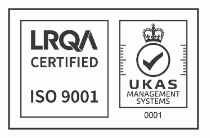Digital advancements have reshaped how we plan, book, and experience travel. There is, however, still much room for innovation. From optimising sustainability to enhancing personal experiences, TravelTech offers significant opportunities.
While the travel industry is huge, TravelTech itself is still a growing and specialised sector, with great potential for further innovation and transformation. It’s no surprise that the COVID-19 pandemic had stunned the industry, but with “revenge travel” driven recovery and a return to normality, the industry is in a good position to evolve further.
Travel Technology (TravelTech) is increasingly gaining attention, driving innovation in areas such as AI-powered travel recommendations, real-time itinerary management, with user experience being key. As travellers demand more personalised, seamless experiences, there is ample room for TravelTech to push boundaries, making travel more efficient and sustainable while enhancing customer satisfaction across the sector.
All the while, the industry must also address challenges such as data privacy and demands for customer service, playing a vital role in modernising the travel industry, all while maintaining strict adherence to ethical, regulatory, and security standards.
Recent global disruptions, like the pandemic, revealed the limitations of traditional travel systems and emphasised the need for more efficient, flexible solutions. This has driven advancements in personalised services, bundling, and sustainability. Companies increasingly aim to bundle services for a seamless experience, offering a single point of support, while startups focus on personalised travel plans, leveraging surveys and live chats. Furthemore, with eco-conscious travellers on the rise, TravelTech is increasingly integrating sustainability through carbon offsetting and eco-friendly options.
Accurate data on the European TravelTech market can be difficult to pinpoint, largely due to the fragmented nature of the industry and the broader categorisation of TravelTech within other mobility and technology sectors. While reports exist on general investment trends in tech and mobility, specific breakdowns for TravelTech are often mixed with figures from adjacent industries like transportation, hospitality, or sustainability tech. This makes it challenging to derive precise data on TravelTech’s market size, investment levels, or growth trajectory across Europe.
The EU offers numerous funding opportunities relevant to TravelTech, even though they may not be exclusively designed for the sector. Horizon Europe, particularly Cluster 4 (Digital, Industry, and Space), supports digital transformation across multiple industries, making it highly applicable to TravelTech innovations. This cluster focuses on technologies like AI, blockchain, and IoT, which are critical for advancements in travel personalisation, automation, and also secure transactions. TravelTech projects that integrate these advanced technologies to enhance traveller experiences or streamline operations could be well-suited for funding, despite the broader scope of these calls. Additionally, sustainability-focused TravelTech projects can also explore funding under the European Green Deal, which aims to support eco-friendly innovations across industries.
How can we help?
If you have a project idea for which you’d like to make use of funding available to bring it to life, then be sure to get in touch. With over 20 years of experience in funding procurement and participation in over 80 successful EU projects to date, AcrossLimits has a dedicated and experienced team that can help you draft proposals and apply to EU funding opportunities. With our expansive network spanning both the private and public sector as well as academia, we’re in pole position to cater to your needs.
To learn more about how we can help you make your project idea a reality, contact us at: [email protected].



